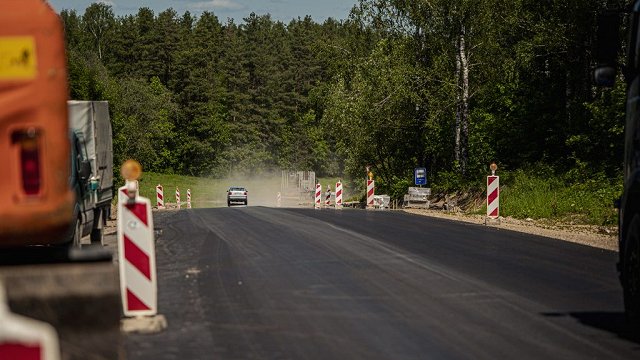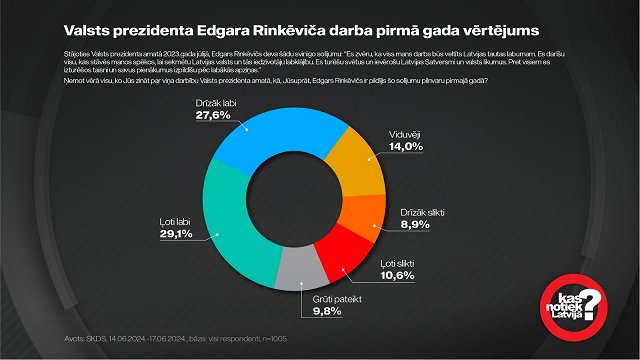For Raimonds Smagars, an environmental accessibility expert from the Association of People with Disabilities and their Friends "Apeirons", voting at the nearest polling station to his home - a school - was very difficult. He could only get to the polling station by taking the stairs, and his electric wheelchair is heavy. In the end, Smagars was able to enter the polling station through the school kitchen door.
"On the other side the kitchen staff have made a ramp there, it's easy that way. And it turns out there is access, but they don't know it themselves! The option is that you can call home and they will come. But I don't want to let strangers into the house. I want to go myself. I want to go myself!"
Smagars admits that the inaccessibility of the environment can also affect participation in elections. Not to mention that wheelchair users would also be happy to earn money by working for the commission.
Smagars said: "If we are talking about integration and European policies, a wheelchair user can be an observer, a worker in the electoral commission, not just a voter. He can be involved in these processes. But at the moment this is prevented because of the inaccessible environment. We want to make all polling stations accessible."
Of the 945 polling stations in the European Parliament, 745, or 79%, were accessible.
This is much higher than before. Andrejs Vaivars, spokesman for the Central Election Commission (CVK), added: "It is plus 14%, increasing with each election, approaching 100 [percent]."
The number of polling stations and where the premises are is up to each municipality. There are municipalities where this issue has been resolved. If the law stipulated that every polling station had to be accessible, the number would be reduced.
"There has to be work with the municipalities and the municipalities themselves have to understand," said Vaivars, the CVK representative.
The Latvian Association of Local Governments (LPS) stressed that cooperation is essential - inviting environmental accessibility experts to inspect buildings and possibly opening polling stations in other accessible premises.
"Only to legislate - the issue of funding, which has already been cut for local governments, will immediately follow. We need to cooperate, move away from the usual places, perhaps, and put them in new buildings where there is already this accessibility," said Gints Kaminskis, chairman of the LPS.




























